Mirtaz
✅ Elevates mood
✅ Reduces depression symptoms
✅ Improves sleep quality
✅ Increases appetite
✅ Boosts energy levels
Mirtaz contains Mirtazapine
Product Overview
Mirtaz is a pharmaceutical preparation containing Mirtazapine as its active component. Classified as a tetracyclic antidepressant (TeCA), this medication is primarily prescribed for managing major depressive disorder (MDD). The therapeutic action of Mirtaz involves modulation of key neurotransmitters in the brain, particularly norepinephrine and serotonin, which play crucial roles in mood regulation. Unique among antidepressants, Mirtazapine also exhibits antagonistic properties at specific serotonin receptors, potentially enhancing its efficacy. The medication is formulated as oral tablets for convenient administration.
Therapeutic Applications
Mirtaz is clinically indicated for adult patients diagnosed with major depressive disorder (MDD), commonly referred to as clinical depression. This psychiatric condition manifests through persistent depressive mood, anhedonia (loss of pleasure), appetite/weight fluctuations, sleep pattern disturbances, chronic fatigue, cognitive impairment, and feelings of inadequacy. Mirtazapine exerts its therapeutic effect by normalizing neurotransmitter equilibrium in the central nervous system, thereby ameliorating depressive symptoms and restoring emotional balance.
Administration Guidelines
Mirtaz tablets should be taken orally, typically as a single daily dose at bedtime. Administration may occur with or without food, as per physician’s instructions. The tablet should be swallowed intact with adequate water – crushing, chewing, or dividing the tablet is contraindicated. Patients should be advised that the full therapeutic benefit may require several weeks of consistent use, and treatment should not be discontinued prematurely despite delayed symptom relief. Abrupt cessation without medical supervision may precipitate withdrawal phenomena.
Mechanism of Action
The pharmacodynamic profile of Mirtazapine involves dual modulation of noradrenergic and serotonergic systems. It inhibits presynaptic alpha-2 adrenergic receptors, thereby enhancing norepinephrine and serotonin release. Simultaneously, it demonstrates selective antagonism at 5-HT2 and 5-HT3 serotonin receptor subtypes. This unique receptor profile contributes to both its antidepressant efficacy and reduced incidence of certain adverse effects commonly associated with other antidepressant classes. The net result is improved neurotransmission in mood-regulating neural pathways.
Dosage Protocol
The therapeutic dosage range for Mirtaz spans 15-45 mg administered once daily, preferably at bedtime. Initial dosing and subsequent titration should be individualized based on therapeutic response, symptom severity, and patient-specific factors. Strict adherence to prescribed dosing is essential, and dose escalation beyond recommended limits is contraindicated. Concomitant alcohol consumption is discouraged due to potential pharmacodynamic interactions that may exacerbate adverse effects.
Therapeutic Advantages
Mirtaz demonstrates significant clinical benefits in MDD management, including resolution of core depressive symptoms (low mood, anhedonia), normalization of sleep architecture, appetite regulation, and improvement in psychomotor activity. Its unique receptor binding profile offers advantages in patients with insomnia or appetite disturbances associated with depression. With sustained pharmacotherapy, Mirtaz facilitates functional recovery and enhances quality of life in affected individuals.
Adverse Effects Profile
Common adverse reactions associated with Mirtaz therapy include somnolence, xerostomia (dry mouth), increased appetite leading to weight gain, dizziness, constipation, and visual accommodation difficulties. These effects are typically transient and dose-dependent. Serious but rare adverse events may include hypersensitivity reactions, seizure activity, or cardiovascular effects. Persistent or severe reactions warrant immediate medical evaluation.
Precautions and Contraindications
Prior to initiating therapy, patients should disclose complete medical history, including concurrent medications (particularly MAOIs or SSRIs), allergies, and comorbid conditions. Caution is advised when operating machinery due to potential CNS depression. Mirtaz is contraindicated within 14 days of MAOI therapy. Gradual dose tapering is recommended when discontinuing treatment to minimize withdrawal symptoms.
Storage Requirements
Mirtaz tablets should be stored at controlled room temperature (15-30°C) in their original packaging, protected from moisture, light, and excessive heat. Keep out of reach of pediatric patients and pets. Proper disposal methods should be employed for expired or unused medication in accordance with local pharmaceutical waste regulations.
Medical Disclaimer
The information provided herein is intended for educational purposes only and represents expert-reviewed pharmacological data. This content does not constitute medical advice nor replace professional clinical judgment. Healthcare providers should be consulted for personalized treatment recommendations, including comprehensive evaluation of potential drug interactions, contraindications, and adverse effects. This material aims to facilitate informed patient-provider discussions regarding therapeutic options.
| Strength | 7.5 mg |
|---|---|
| Quantity | 30 Tablet/s, 60 Tablet/s, 90 Tablet/s, 180 Tablet/s |
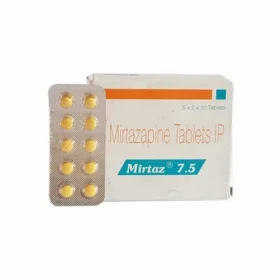 Mirtaz
Mirtaz









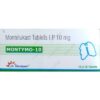
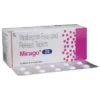





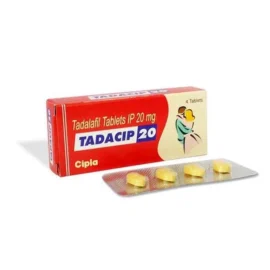
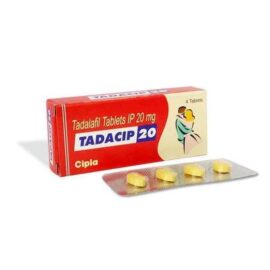
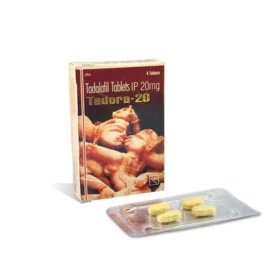
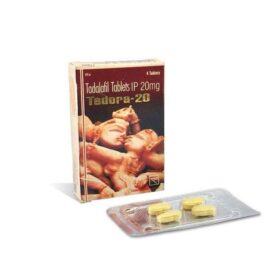
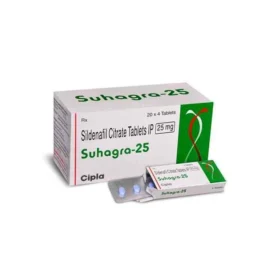







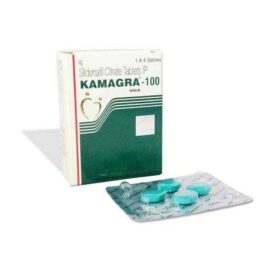
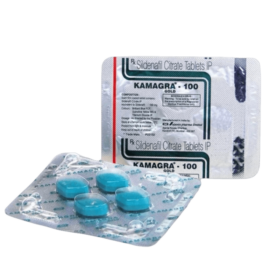



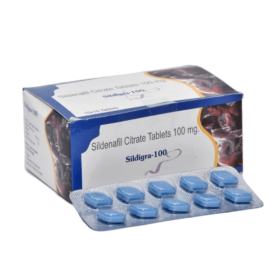
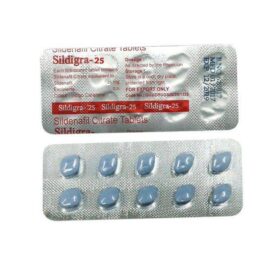
Reviews
There are no reviews yet